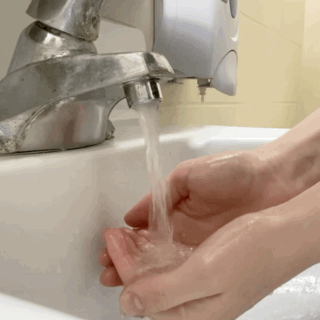The Biden Administration announced schools still have to do standardized tests during the pandemic.
Lynn Gibson says even Illinois superintendents are about 50/50 on whether testing could provide helpful insight on how well students are doing -- or if it’s a complete waste of time.
She’s a superintendent and clinical assistant professor at Northern Illinois University. But is there something in between being ‘a waste of time’ and ‘a useful measure of student learning’?
“I'm not sure if there is a middle ground, frankly,” she said.
Most Illinois students are learning in a partially remote blended format. And plenty of families across the state have opted to keep their kids fully remote.
“In a time when we don't have a lot of time with our students, it's hard to take more time, a couple of weeks to administer the tests and then sending them off,” said Gibson.
She said the last thing schools want is for students’ futures to be dependent on an exam during a global pandemic. Biden education officials discouraged states from using the tests to decide if students can move onto the next grade.
Maurice Davis thinks there might be a middle ground as long as schools use the tests as a single data gathering tool among many others, like local assessments and day-to-day classwork. He’s the executive director of schools at Rockford Public Schools.
“It's not an easy answer. It's not a ‘Yes, we should do it’ or ‘No, we shouldn't,’” said Davis. “I think we have to really be thoughtful about what are we gaining? What are we not gaining? What can we glean from this that's going to help us?”
He says they’ve been discussing how they’re going to do these tests for weeks, but the conversation is still ongoing as to what’s the best way to test kids in different situations.
But is it even still a standardized test if some students have to do it from home while others take it in short sessions in a socially distant classroom? Gibson says probably not.
“Doing standardized testing under a non-standardized environment doesn't seem to make sense,” said Gibson.
School officials from several states including Illinois have sought waivers so districts don’t have to give these tests. But blanket waivers exempting them from the tests aren’t coming. The administration is only offering them the flexibility to do tests remotely or over a longer period of time.
But can the tests even be a reliable data set? Gibson says many have had to shrug their shoulders.
“If it turns out that it can be done with validity, then maybe this will help us with some another data point to help us understand where students learning is,” she said. “None of us can answer that question, though.”
Learning loss is at the heart of this debate: the idea that students are having trouble learning during COVID-19 and are falling behind academically where they would be otherwise. Plenty of schools have reported students failing classes more than usual. The new administration is also giving schools relief money for summer programs to help them catch up.
But teachers have pointed out that they’re already used to helping kids at very different levels of proficiency in a single classroom.
That’s why when you ask Dr. Gibson ‘If these tests are a bad idea, how you do you measure student success?’ She says you turn to their teachers who will have an understanding if they need additional help, intervention or summer school.
“It's not a new thing for us. We're working with human beings. So, there are different ways to teach reading, and there are different ways to learn math, and some of those click with some of our students. We may need to focus on that more now, with more students, but we’re always getting better at it,” she said.
Maurice Davis agrees. He says they need to be fearless to trust students and allow them to have more of a voice in their own education.
“The kid now has the opportunity, if they so choose, to become part of that decision making and be able to say, ‘Hey, listen, I’m thinking I could show you my learning in this way, right?” he said.
The tests were canceled last year because of COVID, so it’s been almost two years since they’ve been done. And it’s reignited the underlying controversy of standardized testing: whether they’re a good barometer of learning at all or just -- as research points to with the SAT -- that your district is more wealthy and can devote resources to test prep.
Dr. Gibson says whatever your mileage is on testing, she hopes there’s one thing schools won’t overlook this spring.
“I'm not sure everyone's remembering that the teacher-student relationship and their time together is the most important,” she said.
And with millions of students away from their teachers for nearly a year, most in education agree: if long periods of testing come at the expense of that relationship? It’s hard to justify.


